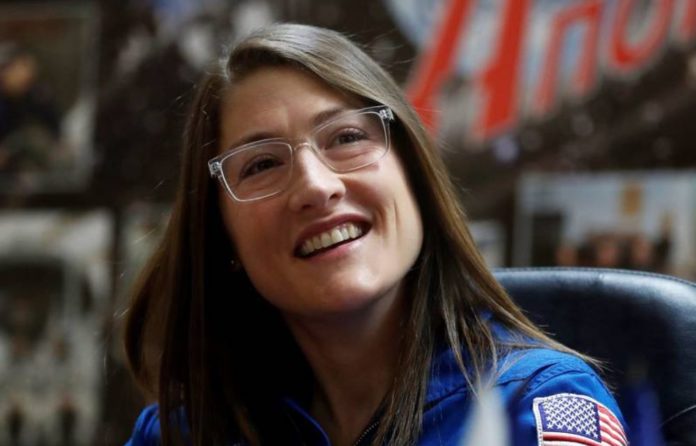She was on a six-month mission, but her stay has been extended to study the effects of microgravity on the human body
Christina Koch has officially become the woman who has spent the longest time in space, with 289 consecutive days and, in that way, unseat her compatriot Peggy Whitson, who spent 288 days in orbit.
Koch, a 40-year-old NASA Expedition 61 flight engineer, has been plethoric for her record in an interview quoted by Space last Thursday (days before passing the Whitson). “Having the opportunity to be here for so long is really an honour“, said Koch, who has been very grateful to Peggy Whitson, her hero and mentor.
Koch left Earth on March 14 towards the International Space Station (IIS) and in October she starred with her partner Jessica Meir, the first female spacewalk. Her mission, initially, was to last only six months, but her stay was extended by NASA, with the aim of collecting more data on the effects of long-term space flights. Now it is planned to return to our planet on February 6, 2020.
328 days
If her return to Earth remains as scheduled, Koch will spend 328 days in space, just 12 days from the longest space flight of a NASA astronaut, 340 days, established by Scott Kelly in 2015. Far, however, from the total record of the permanence of an astronaut in space, which was established in 1995 by the Russian Valeri Vladimirovich Polyakov, with 438 consecutive days.
Although Koch has just surpassed the record of consecutive days in orbit for a woman, Whitson retains the mark of the longest time accumulated in space by an American astronaut and a woman, with 665 days recorded in three missions. Globally, the Russian Gennady Ivanovich Padalka is the human who has spent the most time in space, with almost 878 days.
“It’s a wonderful thing for science. We see how the human body is affected by long-term microgravity, and that is something really important for the advancement of our future missions to the Moon and Mars“, said Koch.
In addition to meeting the scientific objectives of NASA, Koch has recognized that she feels that milestones like her are inspiring and help increase the feeling of overcoming. “In those difficult days, I think ‘you know, this has not been done before, it is normal for it to be difficult’“, she concluded.
